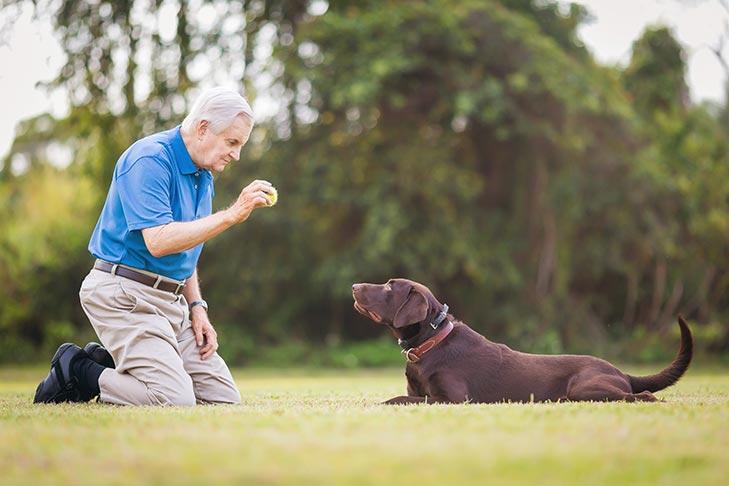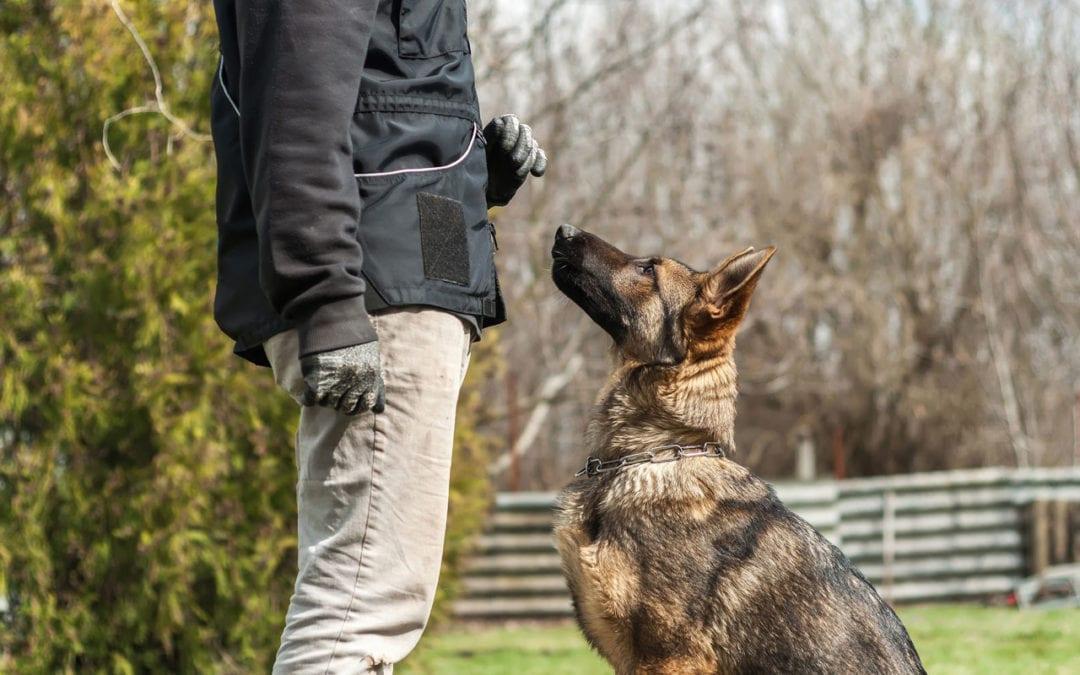When it comes to finding the perfect canine companion, obedience is often at the top of the list for many pet owners. After all, a well-mannered dog not only makes life easier at home but also enhances the overall experience of dog ownership. Whether you’re a first-time dog owner or a seasoned pet parent looking to add to your furry family, choosing a breed known for its obedience can pave the way for a harmonious relationship.
In this article, we’ll explore some of the most obedient dog breeds, highlighting their unique characteristics, trainability, and how they can fit into various lifestyles. From playful pups to calm companions, join us as we delve into the world of obedient breeds and discover which one might just be your next best friend!
Table of Contents
- Understanding Obedience in Dogs and Its Importance
- Top Dog Breeds Known for Their Exceptional Trainability
- Essential Training Tips for Raising a Well-Behaved Companion
- The Best Activities to Enhance Your Dogs Obedience Skills
- Q&A
- In Summary
Understanding Obedience in Dogs and Its Importance
Obedience in dogs goes beyond simple commands; it forms the foundation for a harmonious relationship between pet and owner. When a dog learns to follow commands, it not only enhances safety but also fosters trust and understanding. A well-trained dog is less likely to engage in undesirable behaviors, allowing for smoother interactions both at home and in public spaces. This is particularly crucial for families with children, where a reliable and obedient dog can create a safe and joyful environment.
Moreover, obedient dogs are typically happier and more social. They engage in positive interactions with other dogs and humans, contributing to a well-rounded personality. The key breeds known for their intelligence and trainability often include:
Labrador Retriever
German Shepherd
Golden Retriever
Poodle
Boxer
These breeds not only excel in basic obedience training but are also eager to please their owners, making them ideal companions for those seeking a well-mannered best friend.
Top Dog Breeds Known for Their Exceptional Trainability
When it comes to selecting a dog that not only fits seamlessly into your life but also showcases an eagerness to learn, certain breeds stand out as beacons of trainability. Labrador Retrievers, well-known for their friendly disposition, exhibit an unparalleled willingness to please their owners, making them one of the top choices for families. German Shepherds are not only striking in appearance but also possess a keen intelligence and work ethic that are unparalleled. The vast majority of these breeds thrive on positive reinforcement and engage in learning tasks with enthusiasm. Other breeds that rank highly in trainability include:
Golden Retrievers – Gentle and intelligent, perfect for service work.
Border Collies - Highly energetic and exceptionally smart; they excel in agility training.
Poodles – Versatile and eager to learn, they’re often seen in obedience competitions.
Boxers – Playful and fun-loving, they respond well to consistent training.
To further illustrate the innate characteristics of these breeds, here’s a simple comparison of their key traits:
| Breed | Intelligence Level | Energy Level | Best Training Method |
|---|---|---|---|
| Labrador Retriever | High | Medium | Positive Reinforcement |
| German Shepherd | Very High | High | Consistency and Structure |
| Golden Retriever | High | Medium | Positive Reinforcement |
| Border Collie | Very High | Very High | Variety and Engagement |
Essential Training Tips for Raising a Well-Behaved Companion
Training your dog not only strengthens your bond but also cultivates a calm and respectful behavior that makes for a pleasant companion. Start by establishing consistent commands and ensure everyone in your household uses the same cues to avoid confusing your furry friend. Incorporate positive reinforcement techniques such as treats, praise, or playtime to encourage good behavior. Regular training sessions for about 10 to 15 minutes each day can significantly enhance your dog’s learning experience while keeping them engaged and excited about the process.
Engaging in socialization activities is equally crucial for fostering a well-rounded pet. Expose your dog to various environments, people, and other animals to build their confidence and adaptability. You might consider enrolling your dog in obedience classes or dog sports, which not only provide structured learning but also serve as an excellent way for your dog to interact with others. Here are some essential tips to remember:
Be Patient: Training takes time, and every dog learns at their own pace.
Stay Consistent: Use the same commands and rewards to reinforce learning.
Keep it Fun: Incorporate play and variety to maintain your dog’s interest.
Reward Good Behavior: Always recognize and celebrate successes, no matter how small.
Additionally, consistently assessing your dog’s progress can help tailor your training approach. Below is a simple table to track your dog’s achievements and areas for improvement:
| Skill | Progress (1-5) | Next Steps |
|---|---|---|
| Sit | 4 | Practice with distractions |
| Stay | 3 | Increase duration |
| Come | 5 | Introduce off-leash recalls |
| Leave it | 2 | Use high-value treats for motivation |
The Best Activities to Enhance Your Dogs Obedience Skills
Basic obedience training: Start with fundamental commands such as sit, stay, and come. Use positive reinforcement techniques, like treats or praise, to encourage compliance.
Agility courses: Set up a simple agility course in your backyard or attend a local class. This helps improve focus while providing physical exercise.
Interactive games: Games like hide-and-seek or fetch not only stimulate your dog mentally but also sharpen their listening skills as they respond to your cues.
Socialization opportunities: Regular interactions with other dogs and humans can improve your dog’s confidence and obedience, helping them learn appropriate behaviors in different settings.
Incorporating these activities into your routine will not only enhance your dog’s obedience but also make training a delightful experience. You can also monitor your progress using a simple table to track your dog’s improvement over time. Here’s a quick outline you can follow:
| Activity | Date Started | Progress Note |
|---|---|---|
| Basic Obedience Training | MM/DD/YYYY | Improved sit command |
| Agility Course | MM/DD/YYYY | Successfully completed first course! |
| Fetch Game | MM/DD/YYYY | Response time improved |
Q&A
Q1: What makes a dog breed obedient?
A1: Obedience in dog breeds can often be attributed to a combination of intelligence, trainability, and temperament. Breeds that are eager to please and have a strong desire to bond with their human companions typically respond well to training. Consistency, positive reinforcement, and socialization also play crucial roles in enhancing a dog’s ability to follow commands and behave well.
Q2: Which dog breeds are considered the most obedient?
A2: While obedience can vary by individual dog, some breeds are widely recognized for their trainable nature. These include the Labrador Retriever, German Shepherd, Golden Retriever, Poodle, and Border Collie. Each of these breeds has characteristics that make them particularly suited to learning commands and manners, often excelling in obedience training.
Q3: Are there specific training techniques that work best for obedient breeds?
A3: Positive reinforcement techniques are particularly effective for training obedient breeds. This method involves rewarding desired behaviors with treats, praise, or playtime. Consistency is crucial, so ensuring that commands are given in a uniform manner will help solidify learning. Short, fun training sessions can also keep dogs engaged and motivated.
Q4: Can obedience training be beneficial for all dog breeds?
A4: Absolutely! While some breeds may be more predisposed to obedience, all dogs can benefit from training. Teaching commands and manners not only enhances the bond between the dog and owner but also promotes good behavior and social skills. Training can significantly improve a dog’s quality of life, regardless of their breed.
Q5: How important is socialization in creating an obedient dog?
A5: Socialization is vital for developing well-mannered dogs. Exposing your dog to different environments, people, and other animals helps them feel comfortable in various situations, reducing anxiety and behavioral issues. Proper socialization can enhance training outcomes and lead to a more confident, obedient companion.
Q6: What should I do if my dog isn’t as obedient as I hoped?
A6: If your dog isn’t displaying the level of obedience you anticipated, it may be a sign that they need more focused training or socialization. Consider consulting with a professional dog trainer who can provide personalized guidance and techniques tailored to your dog’s specific needs. Remember, patience and consistency are key!
Q7: Are there any downsides to choosing an obedient dog breed?
A7: While obedient breeds can make excellent companions, they still require regular exercise, mental stimulation, and social interaction. Sometimes, owners may underestimate the energy needs of these breeds, leading to boredom and potential behavioral problems. It’s important to remember that obedience doesn’t negate the need for responsible ownership!
Q8: Can I train a rescue dog to be obedient?
A8: Yes! Rescue dogs may require more time and patience, but with the right approach, they can absolutely be trained to be obedient. Many rescues are highly intelligent and eager to bond with their new families. Just like purebreds, mixed-breed dogs can thrive with positive reinforcement training and socialization.
Q9: What’s one last piece of advice for prospective dog owners seeking an obedient breed?
A9: Choose a breed that matches your lifestyle and activity level. Researching and understanding the characteristics of various breeds will help you find a dog that fits your family. Remember, fostering a loving and structured environment, along with commitment to training, can lead to a well-mannered best friend, regardless of the dog’s breed!
Conclusion: Knowing which dog breeds are typically obedient can help you find a loving companion that fits your lifestyle. With proper training, socialization, and care, any dog can become a wonderful addition to your family!
In Summary
selecting a dog breed that naturally leans towards obedience can significantly enhance your experience as a pet owner. Each of the breeds we’ve explored not only brings unique characteristics and charm but also a willingness to learn and follow commands, making them excellent companions for families and individuals alike. Remember, while breed tendencies can guide you, individual training, socialization, and your bond with your dog play crucial roles in developing a well-mannered best friend. No matter which breed you choose, the journey of training and companionship will be rewarding and filled with joy. Embrace the adventure, and enjoy the unconditional love and loyalty that your furry friend has to offer! Happy dog parenting!

















